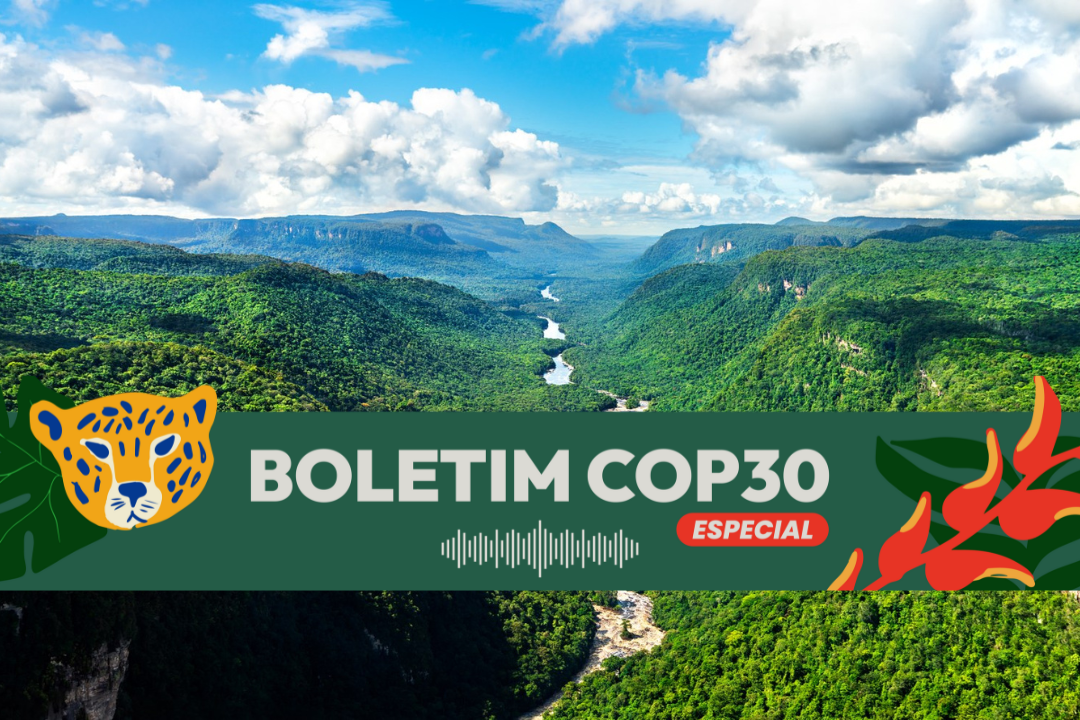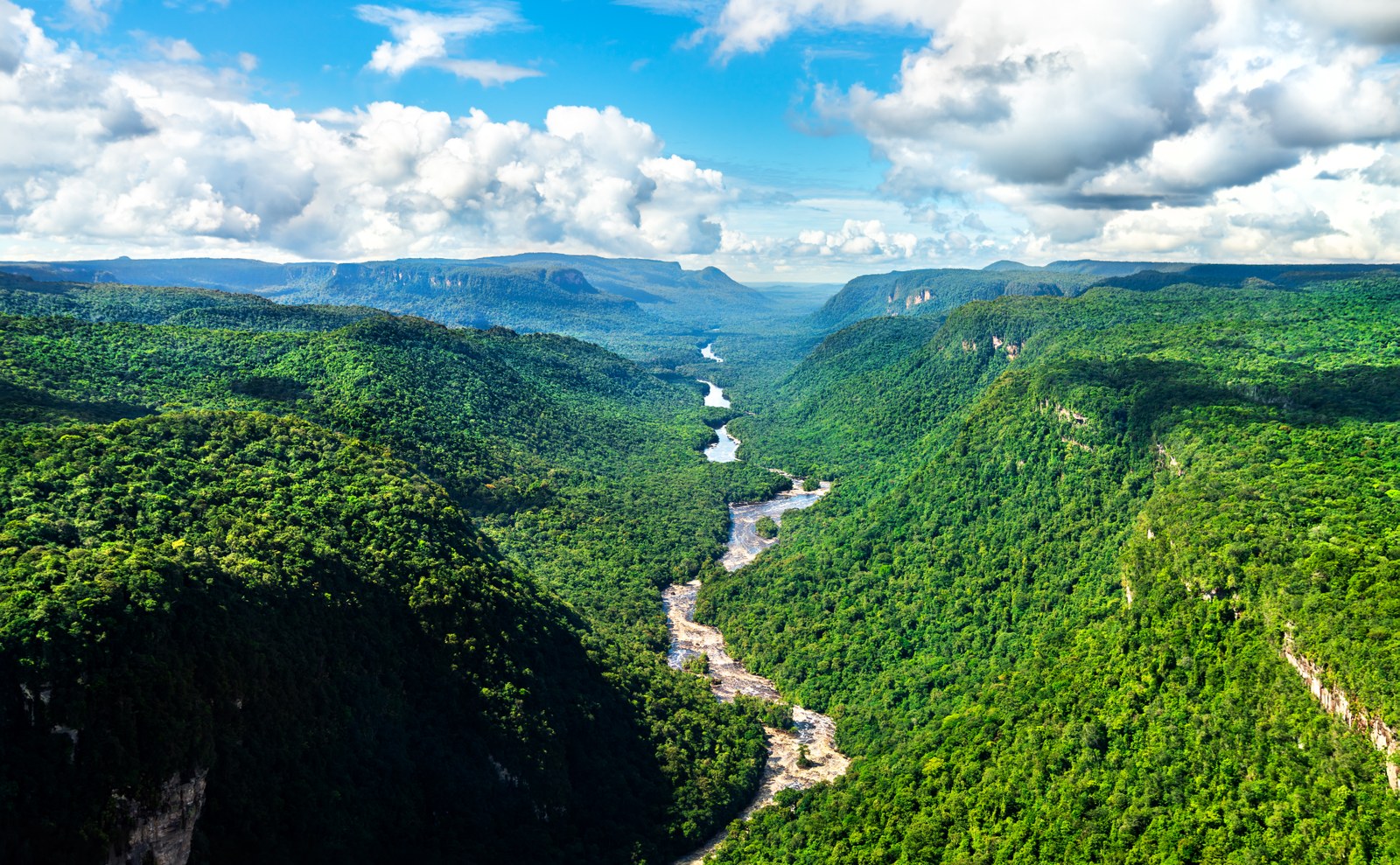COP30 Brasil Special Bulletin - The value of life: understand how Brazil's new fund aims to save tropical forests
André Corrêa do Lago, President of COP30, and Simon Stiell, Executive Secretary of the UNFCCC, underscored the mobilizing role of the Conference set for November in Belém. The legacy they expect: moving from pledges to the implementation of agreements already made. Listen to the report and know more.

Report: Laura Marques | COP30
Voice-over: Paula Godoy and Laura Frederico
Reporter: Brazil is leading an initiative that could change how the world views environmental conservation. The Tropical Forests Forever Fund—TFFF—is a mechanism set to be launched during COP30 that will provide payments to countries that ensure the preservation of their forests.
In all, more than 70 developing countries with tropical forests will be eligible to receive resources from the fund, which has the potential to become one of the largest multilateral funds ever created.
Brazil’s Minister of Environment and Climate Change, Marina Silva, said this is the time to change the way humanity deals with natural resources.
Marina Silva: We have already exploited nature too much to generate financial resources and material goods. Now, it is time to use the resources we have generated through this exploitation to protect nature.
Reporter: Mr. André Aquino, Special Advisor on Economy and Environment at the Ministry of the Environment, explains why biomes such as the Atlantic Forest, the Amazon, and the forests of the Congo and Mekong Basins are fundamental to sustaining life, as we know it.
André Aquino: We know that tropical forests are a source of climate stability because they retain carbon and are key to hydrological cycles—the flying rivers that we know so well here in Brazil, for example. The world’s greatest biodiversity is found in tropical forests. Therefore, they provide ecosystem services for humanity at a global level. What the TFFF seeks is for the world to compensate for part of these services. This is the paradigm shift: to remunerate ecosystem services, ensuring that a standing forest is worth more than a felled one.
Reporter: Projections indicate that the mechanism could generate 4 billion USD annually for environmental preservation. This is almost three times the current global investment in protecting tropical forests. Mr. Rafael Dubeux, Brazil’s Deputy Executive Secretary of the Ministry of Finance, highlights the innovative nature of the TFFF.
Rafael Dubeux: Unlike previous experiences, which were heavily based on donations and philanthropy, the TFFF introduces a new model, based on investment.
Reporter: In addition to Brazil, five other countries with tropical forests are part of the initiative: Colombia, Ghana, the Democratic Republic of the Congo, Indonesia, and Malaysia. Furthermore, five potential investor countries are also involved in the creation of this instrument: Germany, the United Arab Emirates, France, Norway, and the United Kingdom.
According to Ambassador Mauricio Lyrio, Brazil’s Secretary for Climate, Energy, and Environment at the Ministry of Foreign Affairs (Ministério das Relações Exteriores/ MRE), consolidating the Tropical Forests Forever Fund during the conference will strengthen multilateralism.
Mauricio Lyrio: “It is a source of pride that in Brazil, in Belém—in the heart of the Amazon forest—our country is launching an initiative that originated in the Global South, through Brazil’s articulation with other developing countries that also have tropical forests. It has historic significance.”
Reporter: One of the rules established for the fund is that 20% of the amount allocated to each tropical forest country must go directly to Indigenous peoples and local communities. Brazil’s Minister of Indigenous Peoples, Sonia Guajajara, emphasizes that this measure is essential.
Sonia Guajajara: “Indigenous peoples are the greatest guardians of the forest and biodiversity. This has been proven in many contexts. And we have always done this without any resources. With this funding, it will ensure Indigenous peoples’ autonomy, providing the necessary structure to implement their projects and initiatives directly in their territories.”
Reporter: Brazil has led the efforts to create the Tropical Forests Forever Fund since COP28, held in Dubai in 2023. This is one of President Luiz Inácio Lula da Silva’s main priorities this week at the United Nations General Assembly in New York.
English version: Trad. Bárbara Menezes.
Proofreading by Enrique Villamil.


